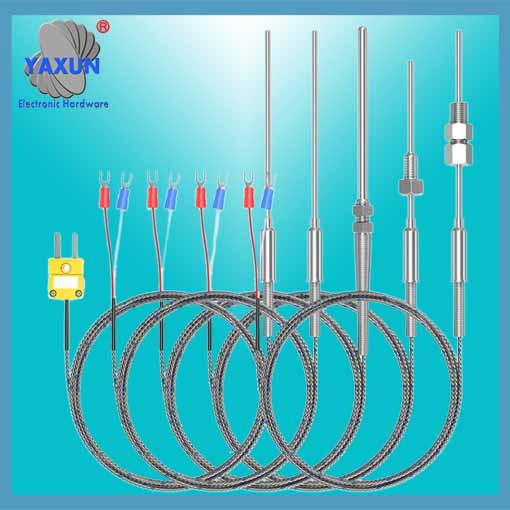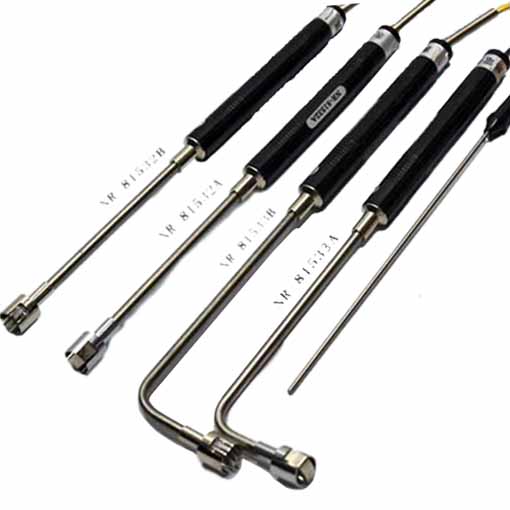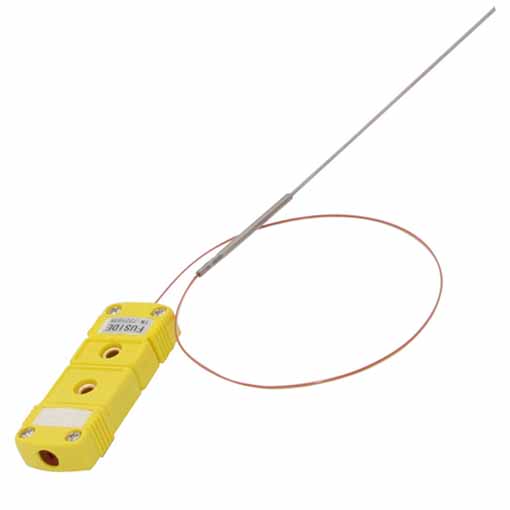Categorias de Produtos
- Disjuntor térmico 20
- Porta-caixa de fusíveis 36
- Sensor de temperatura 67
- Interruptor térmico 64
- Fusível do carro 19
- Fusíveis aparafusados 7
- fusível térmico 32
- fusíveis de montagem em superfície 12
- termistor 22
- Suporte de fusível para montagem em PCB 27
- Chicote de fiação 6
- Porta-fusíveis de lâmina 17
- termostato 46
- Fusível elétrico 14
Etiquetas de produto
Postagens recentes
Classificação de medição de temperatura por termopar
Sensores termopares (Resistência térmica blindada, Resistência à platina à prova de chamas, Metal precioso de alta temperatura (ródio platina) termopar, Resistência térmica anticorrosiva, End face thermal resistance, Power station thermocouple sensors, Hot runner thermocouple) is a kind of temperature sensing element. thermocouple directly measures temperature. Two different components of a conductor material composed of a closed loop. Due to different materials, different electron densities produce electron diffusion, and an electric potential is generated after stable equilibrium. When there is a gradient temperature at both ends, a current will be generated in the loop, generating thermoelectromotive force. The greater the temperature difference, the greater the current. The temperature value can be known after measuring the thermoelectromotive force. A thermocouple sensors is actually an energy converter that converts heat energy into electrical energy.
The technical advantages of thermocouples sensors: the thermocouple has a wide temperature measurement range, and its performance is relatively stable. The measurement accuracy is high, the thermocouple is in direct contact with the measured object, and is not affected by the intermediate medium. The thermal response time is fast, and the thermocouple responds flexibly to temperature changes. The measuring range is large, and the thermocouple can measure the temperature continuously from -40~+1600℃. The thermocouple has reliable performance and good mechanical strength. Long service life and convenient installation.
The galvanic couple must be composed of two conductor (or semiconductor) materials with different properties but meet certain requirements to form a loop. There must be a temperature difference between the measuring terminal and the reference terminal of the thermocouple.
The conductors or semiconductors A and B of two different materials are welded together to form a closed loop. When there is a temperature difference between the two attachment points 1 e 2 of the conductors A and B, an electromotive force is generated between the two, so a current of a magnitude is formed in the loop. This phenomenon is called the thermoelectric effect. Thermocouple is the application of this effect to work.
The thermocouple is actually a kind of energy converter. It converts thermal energy into electrical energy, and uses the generated thermoelectric potential to measure temperature. For the thermoelectric potential of a thermocouple, the following issues should be paid attention to :
1. The thermoelectric potential of a thermocouple is the difference between the temperature functions of the two ends of the thermocouple, not the temperature difference between the cold and working ends of the thermocouple.
2. The size of the thermoelectric potential generated by the thermocouple. When the material of the thermocouple is uniform, it has nothing to do with the length and diameter of the thermocouple, but only with the composition of the thermocouple material and the temperature difference between the two ends.
3. After the material composition of the two thermocouple wires of the thermocouple is determined, the thermoelectric potential of the thermocouple is only related to the temperature difference of the thermocouple. If the temperature of the cold junction of the thermocouple remains constant, the thermoelectric potential of the thermocouple is only a single value function of the temperature of the working junction. Solder two conductors or semiconductors A and B of different materials to form a closed loop, as shown in the figure. When there is a temperature difference between the two attachment points 1 e 2 of the conductors A and B, an electromotive force is generated between the two, thus forming an order of magnitude current in the loop. Thermocouples use this effect to work.
Straight handle handheld surface thermocouple thermometer probe Armored fast high temperature slender probe thermocouple
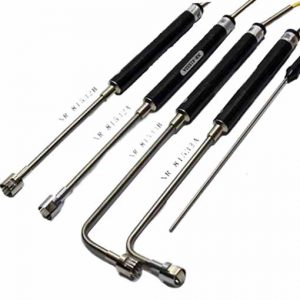
Sonda de termômetro termopar de superfície portátil com alça reta
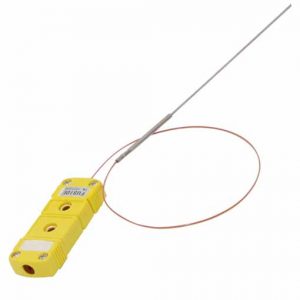
Armored fast high temperature slender probe thermocouple
Contate-nos
Aguardando seu e-mail, responderemos dentro de 12 horas com informações valiosas que você precisava.
 English
English العربية
العربية Български
Български 粤语
粤语 中文(简体)
中文(简体) 中文(漢字)
中文(漢字) Nederlands
Nederlands Suomi
Suomi Français
Français Deutsch
Deutsch Ελληνικά
Ελληνικά Magyar
Magyar Italiano
Italiano 日本語
日本語 한국어
한국어 Polski
Polski Português
Português Română
Română Русский
Русский Slovenščina
Slovenščina Español
Español Svenska
Svenska ภาษาไทย
ภาษาไทย Türkçe
Türkçe Tiếng Việt
Tiếng Việt
